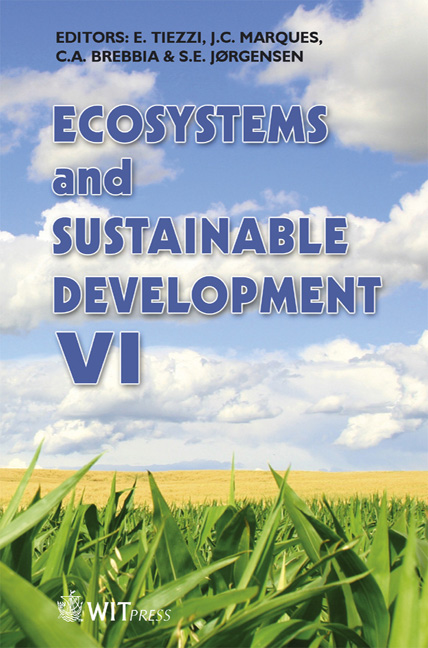Efficiency Analysis For The Production Of Modern Energy Carriers From Renewable Resources And Wastes
Price
Free (open access)
Transaction
Volume
106
Pages
11
Published
2007
Size
439 kb
Paper DOI
10.2495/ECO070231
Copyright
WIT Press
Author(s)
K. J. Ptasinski
Abstract
Two global problems related to the use of fossil fuels are fast depletion and environmental damage. Biomass has a great potential as a clean renewable feedstock for producing modern energy carriers such as biodiesel, methanol, and hydrogen. However, the use of biomass is accompanied by possible ecological drawbacks such as limitations of land or water and competition with food production. For biomass-based systems, a key challenge is thus to develop efficient conversion technologies. This paper presents the efficiency analysis based on the Second Law of Thermodynamics for production of energy carriers from biomass. It is shown that the exergetic efficiency of renewable energy carriers is lower than that for fossil fuels. The highest efficiency is achieved for hydrogen production from high quality feedstock that is comparable with fossil fuels. Keywords: renewable energy, biomass, second law analysis, exergy efficiency. 1 Introduction The present world’s energy demand is met by fossil fuels, i.e. petroleum, natural gas and coal. Two global problems related to the use of fossil fuels are a fast depletion and environmental damage due to emissions of various gases as COx, SOx, and NOx. In the future our energy systems will need to be renewable and sustainable, but also efficient, cost-effective and safe. It is widely acknowledged that the solution to the global problems would be to replace the existing fossil fuels by renewable energy (e.g. solar, wind and biomass).
Keywords
renewable energy, biomass, second law analysis, exergy efficiency.





